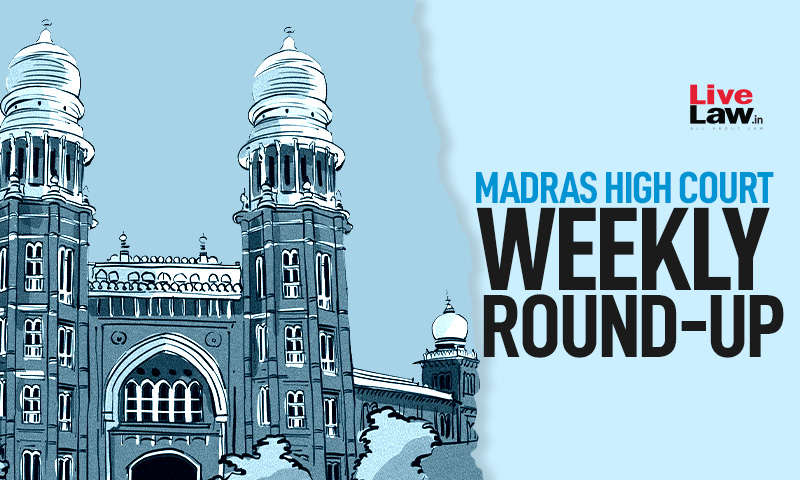Next Story
15 May 2022 6:15 PM IST
A weekly round-up of important cases from Madras High Court. Citations: 2022 LiveLaw (Mad) 206 To 2022 LiveLaw (Mad) 212 NOMINAL INDEX Lakshmi Ammal (died) and Others v. Ammayi Ammal (died) and others, 2022 LiveLaw (Mad) 206 K. Murugan v. The Registrar and Others, 2022 LiveLaw (Mad) 207 M/s.Vetrivel Explosives Pvt. Ltd. Versus Union of India, 2022 LiveLaw (Mad)...

